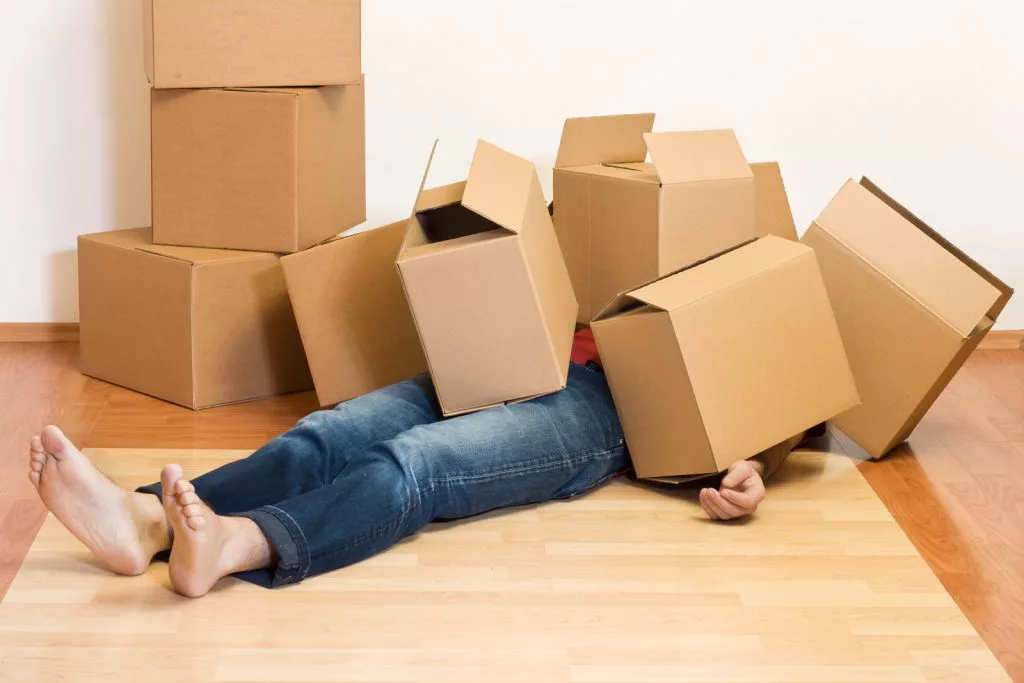
Anytime you are juggling several tasks at once, mistakes are likely to occur. And even when mistakes happen, relocating already has a reputation for being stressful enough. The fewer mistakes you can make when relocating, the easier (and less expensive) the process will be.
Numerous things in life, such as cooking, mathematics, and driving a car, are better learned the hard way. But one of those things is not how to move. Before making your next step, the more you can understand what you should and shouldn’t do, the better. Read this article prepared by Safebound Moving & Storage to discover the eight moving faults you should watch out for.
Although there are many moving firms, not all of them are the same. You must ask for recommendations, study reviews, and actually phone a few different businesses to get information and quotes in order to select the best professional movers for the task. You run a significant danger to your possessions and peace of mind if you choose the first name that appears on the search engine results page. Additionally, you’re not doing your pocketbook any favors because price comparisons are the only way to find a decent offer.
Use a resource like the ProMover database offered by the American Moving & Storage Association. The idea is to begin with a validated list of trustworthy residential and commercial movers so that you can work from a foundation of experts you can rely on. From there, you may pick the business that best suits your needs and your budget.
According to federal requirements, interstate movers must provide their customers with both released-value protection and full-value protection. The former establishes the value of your possessions at 60 cents per pound, and the latter offers coverage based on your own estimation of the objects being transported because many customers are aware that their possessions are worth more than that. However, if your possessions are damaged, full-value insurance does not imply the moving company will send you a check for that amount; rather, you will receive a new item of comparable value, or the firm will cover the cost of the item’s repair.
Another choice is supplementary moving insurance from a third-party firm or independent liability insurance, which is provided by certain movers and is subject to state legislation. If you have home insurance, you may also determine if it includes coverage for things while in transit.
Although it’s unlikely that you’ll need to utilize your insurance (as long as you’re dealing with a professional mover), it’s up to you to determine how much risk you’re willing to accept. If you don’t do that, you could have little to no redress if something bad happens. Ask about the sorts of coverage choices you have when selecting a moving company. After gathering the information, you may decide for yourself what degree of protection makes the most sense for you and whether you require more than what is being supplied.
Although hiring professional movers is expensive, it nearly always pays off. Even with your friends’ assistance, moving alone will take more time and effort than hiring professionals. It will also be much more dangerous if you have valuable stuff. While there are many circumstances in which relocating yourself is perfectly acceptable, it is a mistake to quickly dismiss the thought of working with a moving company simply because you want to save money or believe it would be a simple task (it rarely is).
Packing takes time, even if you’re just going to dump stuff carelessly into moving boxes. It’s practically a given that some sections, which you anticipated taking 10 minutes to pack, will take closer to an hour, and some others, which you know from the start, won’t be a stroll in the park (hi, kitchen). Tension will always result from not giving oneself enough time, stress that might have been prevented with greater planning.
The idea that the best time to trim down your personal stuff is during a relocation is included in the holy grail of moving advice. The less you have to move, the better; also, packing and unpacking items you no longer desire or need is a waste of time. However, far too frequently, we choose to reduce duties by just throwing everything into a box rather than organizing and getting rid of stuff. Bringing extra stuff with you not only wastes time but also adds to the expense of your relocation in terms of labor and petrol.
California, known for its diverse economy and thriving tech industry, is a hotbed for innovation.…
As a violinist, I can't stress enough how crucial a top-notch case is in the…
Imagine a life where limitations do not exist—a life where you relentlessly pursue your dreams…
Asbestos exposure has left a long legacy of health issues in Australia, particularly mesothelioma and…
Did you know maintenance and financing, fuel management, driver management, vehicle monitoring and diagnostics, and…
It can be difficult to meet a matching spouse in this fast-paced environment. Online dating…